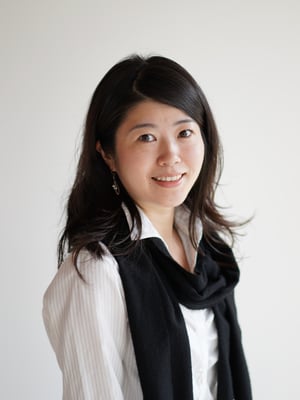TOPICS
- SPOTLIGHT
- Research
- 2021
Young Faculty:Lecturer Kaori Sugihara
Young Faculty / 051
Lecturer Kaori Sugihara : Sugihara Lab, Institute of Industrial Science, Department of Chemical System Engineering

<Biography>
2020 – present Lecturer, Institute of Industrial Science, Department of Chemical System Engineering, Faculty of Engineering, University of Tokyo
2014 – 2020 Tenure-track Assistant Professor,Department of Physical Chemistry, University of Geneva
2012 – 2014 Postdoctoral Researcher, Max Planck Institute for Intelligent Systems
2008 – 2012 Dr of Sciences, Department of Information Technology and Electrical Engineering, ETH Zurich
2006 – 2008 MEng in Applied Physics, Department of Applied Physics, The University of Tokyo
2002 – 2006 BSc in Physics, Department of Physics, Keio University
<About the Research>
Biology, drug discovery, and medicine have been advanced by technological breakthroughs often developed by physics and chemistry. Our long-term goal is to exploit physics and physical chemistry to create innovative methods for imaging and analysis of biological membranes.
Recent topics
・Development of chip-based high-throughput electrophysiological methods: Membrane proteins and peptides that form channels in cell membranes can be studied by electrophysiological methods. We are working on the improvement of the quality, quantity and throughput of these conventional electrophysiological tools.
・Development of biosensors based on mechanochromic polymers: Mechanochromic polymer emits fluorescence upon an application of local forces. By taking advantages of its properties, we are developing a force sensor that can capture mechanical interactions between biomolecules.
・Antimicrobial peptide double cooperativity: Antimicrobial peptide is natural antibiotics that our bodies produce when we are infected by bacteria. Recently we have found a phenomenon called “double cooperativity”, where a mixture of 2 types of peptides switches its function from destructive to protective depending on the target. Understanding its mechanism will enable the development of new class of antibiotics that have a high antimicrobial efficiency and have small side effects. 
<Future aspirations>
In 2020 as a part of COVID-19 research, we developed a method to recharge the electrostatics of medical N95 masks for improving their filter performance. We are always looking for research topics, where we can take advantages of our tools and expertise, so that we can provide values in the society.
<WEB>
Lab : https://sugiharalab.iis.u-tokyo.ac.jp/

